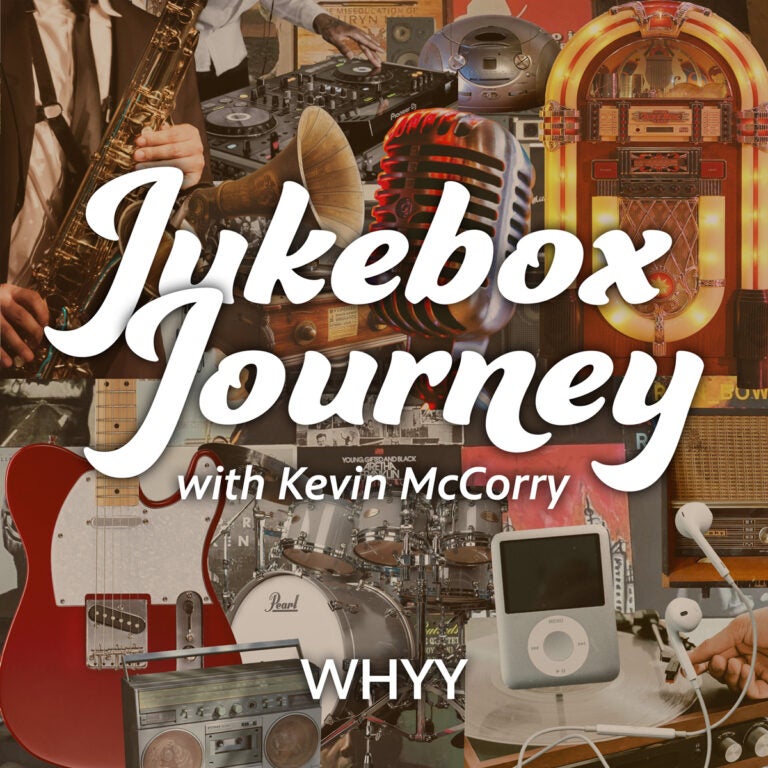KEVIN McCORRY, HOST: I’m Kevin McCorry and this is ‘Jukebox Journey’
[MUSIC MONTAGE: “Walk on the Wildside” by Lou Reed, into “Can I Kick it?” by A Tribe Called Quest.]
KM: We’re unstuck in time, jumping through decades and genres, meditating on a theme.
This week: samples — the echoes of music through generations.
[MUSIC BLEND: “Islands in the Stream” by Dolly Parton and Kenny Rogers, into “Ghetto Supastar” by Pras, feat. Ol’ Dirty Bastard and Mýa]
KM: Number 1 on the chart the summer of ‘83, Dolly Parton and Kenny Rogers. Number 15 the summer of 1998, Pras, Ol’ Dirty Bastard and Mýa.
[MUSIC SWELL]
KM: They’re questions we all wrestle with: what impact am I having? What am I leaving behind?
In music, a well used sample can be transcendent, like a bridge between disparate eras and styles.
[MUSIC BLEND: “You Got What I Need” by Freddie Scott, into “Just a Friend” by Biz Markie]
KM: Like here with Freddie Scott in 1968 and Biz Markie in ‘89.
[MUSIC SWELL]
KM: Maybe you didn’t see the connection before, but, done right, the new song helps underscore the universality of music. It highlights the contrasts between the artists while also revealing, maybe surprisingly, the common ties.
[MUSIC BLEND: “Woman to Woman” by Joe Cocker, into “California Love” by 2Pac, Roger, Dr. Dre]
KM: From Joe Cocker in 72, to Dr. Dre and Tupac in 1995.
In life, sometimes the clarity of the sample is obvious, especially to others: ‘Ahh, you’re like that because of your mom. You do that because of your dad.’
[MUSIC BLEND: “Genius of Love” by Tom Tom Club, into ”Fantasy” by Mariah Carey]
KM: From Tom Tom Club in 1981, to Mariah Carey in 1995.
Other times it’s harder to trace the lineage. Imagine your great-great-grandparents meeting you as an adult. Would the recognizable traits jump out? Or would you seem completely foreign?
[MUSIC: “The Last Time” by The Rolling Stones]
From the Rolling Stones in 1965…
[MUSIC: “Bittersweet Symphony” by The Verve]
To The Verve in 1997…
The missing key in this equation? The 1966 orchestral version the ‘Stones manager created.
[MUSIC: “The Last Time” by the Andrew Oldham Orchestra.]
KM: In life as in song, the samples that lurk beneath the surface and weave through the decades can be the most interesting.
In 1972, the soft rock group Bread had a hit with a song called “Aubrey.”
[MUSIC: “Aubrey” by Bread]
KM: The following year, longtime Philly native Grover Washington Jr. did a saxophone version.
[MUSIC: “Aubrey” by Grover Washington Jr.]
KM: And that was sampled in 1996 by the hip-hop group Souls of Mischief.
[MUSIC: “Step to My Girl” by Souls of Mischief]
[MUSIC: “Step” by Vampire Weekend]
Two decades after that, Vampire Weekend fused it all together on their standout record “Modern Vampires of the City.”
[MUSIC SWELL]
In music, the sampler, samplee power dynamic can be complicated, but it’s formalized. There’s consent and royalty payment involved….or, lawsuits.
[MUSIC BLEND: “He’s So Fine” by The Chiffons, into “My Sweet Lord” by George Harrison]
Like famously, the Chiffons serving George Harrison for using their 1963 hook in his track from 1970.
The dynamic in life is wildly informal, but no less complicated. You don’t get to choose your bloodline of origin — for better or worse, it’s yours. And the children you create didn’t get to choose you — for better or worse, your theirs.
But you do get to try to be the source you’d like to see sampled in the world.
But at a certain point, you know, where the next generation takes it, is out of your control.
[MUSIC BLEND: “I Believe to My Soul” by Monk Higgins, into “Not Like Us” by Kendrick Lamar]
KM: From Monk Higgins 1968 To Kendrick Lamar 2024, I’m Kevin McCorry. And this has been ‘Jukebox Journey’….on WHYY.
collapse




